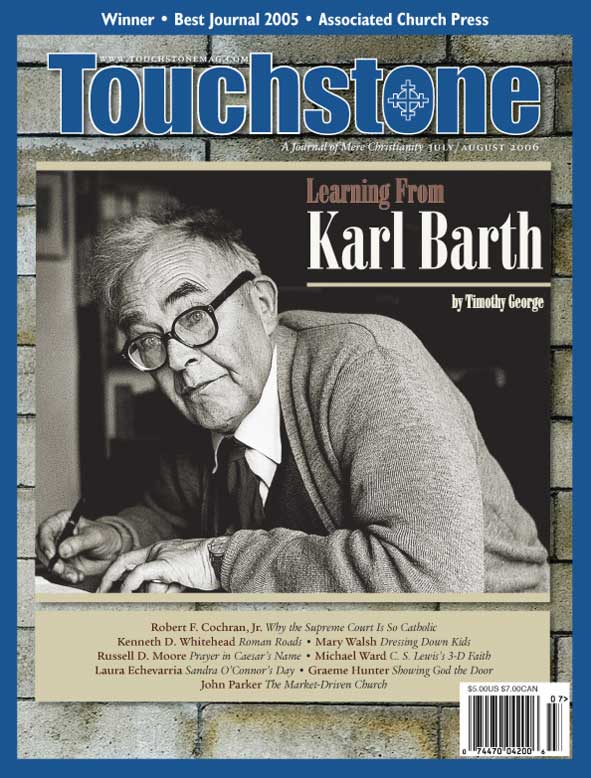The Unfit To Be Tied
Margaret Sanger’s Eugenic Legacy:
The Control of Female Fertility
By Angela Franks
McFarland and Company, 2005
(352 pages, $39.95, paperback)
reviewed by Anne Barbeau Gardiner
Before this book, there has been a strange academic silence about Margaret Sanger’s commitment to what she herself called “negative” eugenics. Angela Franks, a feminist scholar inspired by Germaine Greer and Jean Bethke Elshtain, among others, and a doctoral student in systematic theology at Boston College, proves that eugenic elimination of those she considered “unfit” was the key motivation behind Sanger’s campaign for birth control.
In this eye-opening and thoroughly documented book (there are a hundred pages of notes), Franks persuades the reader that it is a mistake to describe Sanger as a feminist, since from 1917 to the end of her life, she was utterly devoted to eugenics, and her vision of the “free woman” was in fact that of an “engineered and infertile woman” serving the ends of the medical, pharmaceutical, and political establishments.
Sanger railed against the “wickedness of large families” out of fear that the poor would flood the world with “cheap” human beings. She blamed the poor for “creating slums” and filling institutions with dependents.
Such people, she wrote in 1925 in an essay titled “The Need of Birth Control in America,” “have done absolutely nothing to advance the race one iota. Their lives are hopeless repetitions. All that they have said has been said before; all that they have done has been done better before. Such human weeds clog up the path, drain up the energies and the resources of this little earth. We must clear the way for a better world; we must cultivate our garden.”
Preventing the appearance of such “weeds” was her answer to human suffering. Franks sums up Sanger’s message to women thus: “Your mothering is a burden to you and a threat to the world.” To solve this problem, women would have to place themselves, or be placed, under the control of doctors and eugenicists.
Eugenic Core
A dues-paying member of the American Eugenics Society (AES) to the end of her life (she died in 1966), Sanger worked “very closely” in the birth-control movement with many who were leaders in eugenics here and abroad. Some argue that she had only a superficial connection with eugenics, but Franks gives evidence that it was her core principle.
Sanger succeeded where the AES failed because her groundbreaking strategy was to advance eugenics and sexual freedom together. She offered working-class women the same sexual freedom with birth control that rich women already had, foreseeing that the result would be fewer working-class children. As Franks puts it, “Eugenic unfreedom would feel like liberation.”
Anne Barbeau Gardiner is Professor Emerita of English at John Jay College of the City University of New York. She has published on Dryden, Milton, and Swift, as well as on Catholics of the 17th century.
subscription options
Order
Print/Online Subscription

Get six issues (one year) of Touchstone PLUS full online access including pdf downloads for only $39.95. That's only $3.34 per month!
Order
Online Only
Subscription

Get a one-year full-access subscription to the Touchstone online archives for only $19.95. That's only $1.66 per month!
bulk subscriptions
Order Touchstone subscriptions in bulk and save $10 per sub! Each subscription includes 6 issues of Touchstone plus full online access to touchstonemag.com—including archives, videos, and pdf downloads of recent issues for only $29.95 each! Great for churches or study groups.
Transactions will be processed on a secure server.
more from the online archives
calling all readers
Please Donate
"There are magazines worth reading but few worth saving . . . Touchstone is just such a magazine."
—Alice von Hildebrand
"Here we do not concede one square millimeter of territory to falsehood, folly, contemporary sentimentality, or fashion. We speak the truth, and let God be our judge. . . . Touchstone is the one committedly Christian conservative journal."
—Anthony Esolen, Touchstone senior editor









